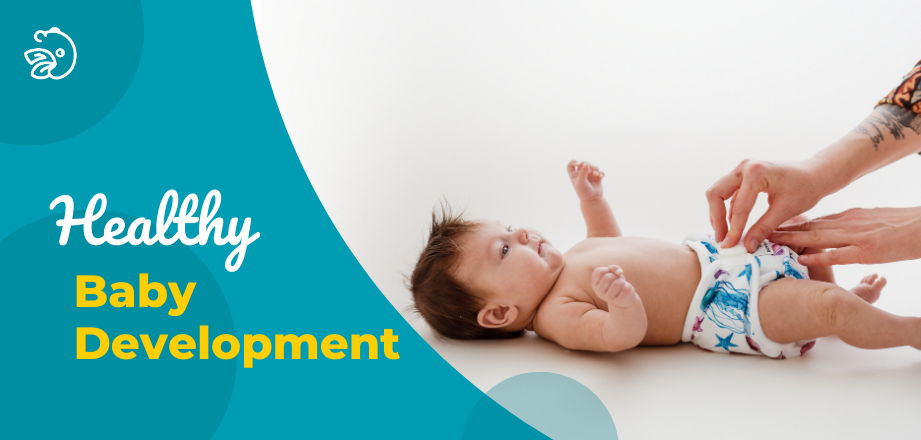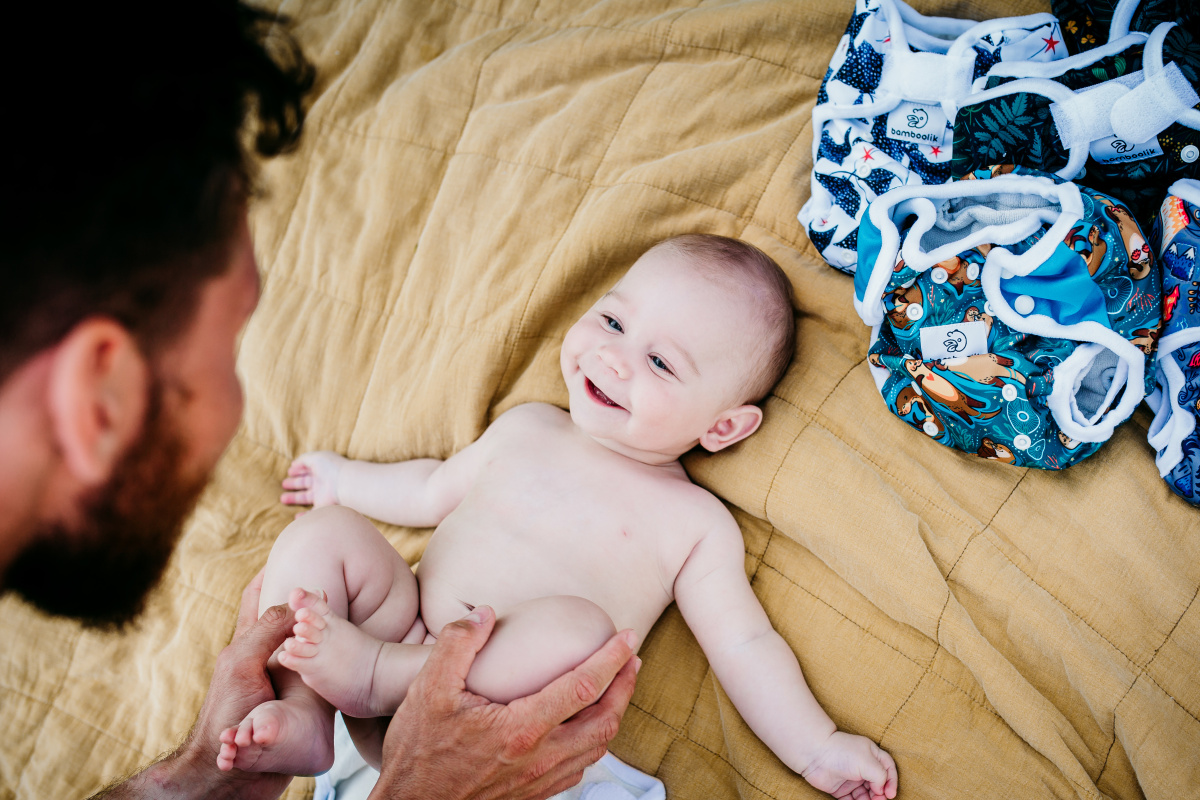
The internet is full of advice on baby development. Brochures and books are written on that topic. Your relatives and friends try to pass their wisdom on you. Sometimes even strangers in the street need to share their unsolicited advice with you. All the information might make your head turn and sometimes even contradict each other. What to make of it?
Baby Development by the Book
Every piece of advice you get should be taken with a pinch of salt. Every baby has their strengths and weaknesses, as all people do. Some babies start walking early on, some talk when they’re just one year old. Some kids master potty training at 18 months, some still need diapers at the age of four. Every child is unique and so is their development.
At Bamboolik, we swear by this philosophy. And we’re sure all parents of multiple kids would also agree. What worked with your oldest, is useless when applied to your youngest. What your four-year-old is still struggling with, your two-year-old is already a pro at. It’s pointless to compare, even among siblings. Let alone among kids that are not related.
However, the proverbial pinch of salt should be added to every advice on baby development, including the “don’t compare kids" one. While some physical ability milestones might differ by weeks (crawling), months (walking) or even years (talking), vast differences in reactions are not that common and may signify a more serious problem.
Listen to Your Parental Instinct
Pay attention to your baby’s reactions, since birth. A baby of six months who laughs when they see you, whose eyes sparkle with joy when they discover the world around them, who is curious about everything around them, is probably perfectly fine even when they can’t turn around on their own yet. Which they should already be able to do, according to clever books on baby development.
On the other hand, a baby who doesn’t react to their closest people and doesn’t seem to care about things around them, AND can’t turn on their belly yet, might be unfortunately suffering from a developmental impairment.
You as parents know your baby the best. You’re with them all the time. Your parental feelings and instincts matter the most. And in case your intuition tells you that something is amiss, don’t ignore it. Seek professional help to have your baby checked.
Lack of reactions is the most usual giveaway of various development impairments. Children with neurological issues are apathetic, don’t seem to be eager to discover the world around them as healthy babies do. On the contrary, babies with autism spectrum disorder might focus almost unnaturally on certain objects and activities. Some autistic babies suffer from so called nystagmus (uncontrolled rapid eye movements).
Less serious forms of autism are typically diagnosed late as paediatricians often don’t recognise them. An in-time diagnosis might save you a lot of worries, nerves and feelings of failure. It also helps your baby overcome some issues they might be experiencing and support them in the correct way. Taking into account their differences.

|
Did You Know? Autism can often be connected with eyesight impairments. A baby can’t recognise faces well, their peripheral vision might be impaired, or their brain doesn’t process visual perceptions right. Such disorders can affect a child’s ability to perceive their surroundings, understand emotions, communicate with other people and form relationships. With the right treatment and care, you might help your baby overcome these issues. |
Early Childhood Care
The optimal and also the most gentle way to have your baby checked is having a professional come to your home. This way, they see the baby in their natural surroundings, among people who are close. Dive into the internet and find professionals close to your home. It’s never too early for early childhood care.
